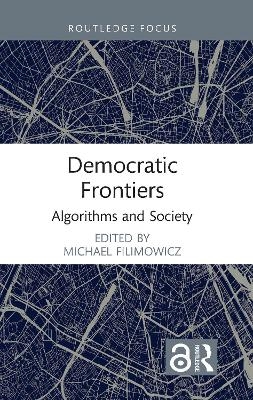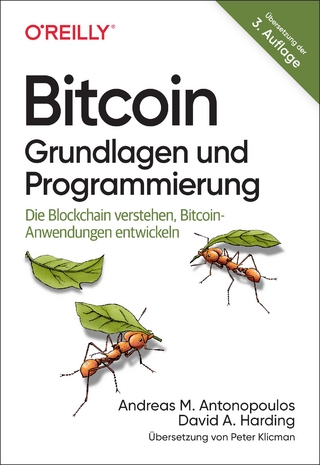
Democratic Frontiers
Routledge (Verlag)
978-1-032-00267-5 (ISBN)
Democratic Frontiers: Algorithms and Society focuses on digital platforms’ effects in societies with respect to key areas such as subjectivity and self-reflection, data and measurement for the common good, public health and accessible datasets, activism in social media and the import/export of AI technologies relative to regime type.
Digital technologies develop at a much faster pace relative to our systems of governance which are supposed to embody democratic principles that are comparatively timeless, whether rooted in ancient Greek or Enlightenment ideas of freedom, autonomy and citizenship. Algorithms, computing millions of calculations per second, do not pause to reflect on their operations. Developments in the accumulation of vast private datasets that are used to train automated machine learning algorithms pose new challenges for upholding these values. Social media platforms, while the key driver of today’s information disorder, also afford new opportunities for organized social activism. The US and China, presumably at opposite ends of an ideological spectrum, are the main exporters of AI technology to both free and totalitarian societies. These are some of the important topics covered by this volume that examines the democratic stakes for societies with the rapid expansion of these technologies.
Scholars and students from many backgrounds as well as policy makers, journalists and the general reading public will find a multidisciplinary approach to issues of democratic values and governance encompassing research from Sociology, Digital Humanities, New Media, Psychology, Communication, International Relations and Economics.
Chapter 3 of this book is available for free in PDF format as Open Access from the individual product page at www.routledge.com. It has been made available under a Creative Commons Attribution-Non Commercial-No Derivatives 4.0 license
Michael Filimowicz is Senior Lecturer in the School of Interactive Arts and Technology (SIAT) at Simon Fraser University. He has a background in computer-mediated communications, audiovisual production, new media art and creative writing. His research develops new multimodal display technologies and forms, exploring novel form factors across different application contexts including gaming, immersive exhibitions and simulations.
1. Algorithmic Knowledge and the Subversion of Subjectivity
2. Algorithms, Conventions and New Regulation Processes
3. From Big to Democratic Data: Why the Rise of AI Needs Data Solidarity
4. Democratic Possibilities of Digital Feminism: The Case of #IstanbulConventionSavesLives and #IstanbulSozlesmesi
5. Politics of Artificial Intelligence Adoption: Unpacking the Regime Type Debate
| Erscheinungsdatum | 11.02.2022 |
|---|---|
| Reihe/Serie | Algorithms and Society |
| Zusatzinfo | 1 Tables, black and white; 13 Line drawings, black and white; 13 Illustrations, black and white |
| Verlagsort | London |
| Sprache | englisch |
| Maße | 138 x 216 mm |
| Gewicht | 272 g |
| Themenwelt | Informatik ► Netzwerke ► Sicherheit / Firewall |
| Mathematik / Informatik ► Informatik ► Theorie / Studium | |
| Recht / Steuern ► Privatrecht / Bürgerliches Recht ► IT-Recht | |
| Sozialwissenschaften ► Soziologie | |
| ISBN-10 | 1-032-00267-0 / 1032002670 |
| ISBN-13 | 978-1-032-00267-5 / 9781032002675 |
| Zustand | Neuware |
| Informationen gemäß Produktsicherheitsverordnung (GPSR) | |
| Haben Sie eine Frage zum Produkt? |
aus dem Bereich


